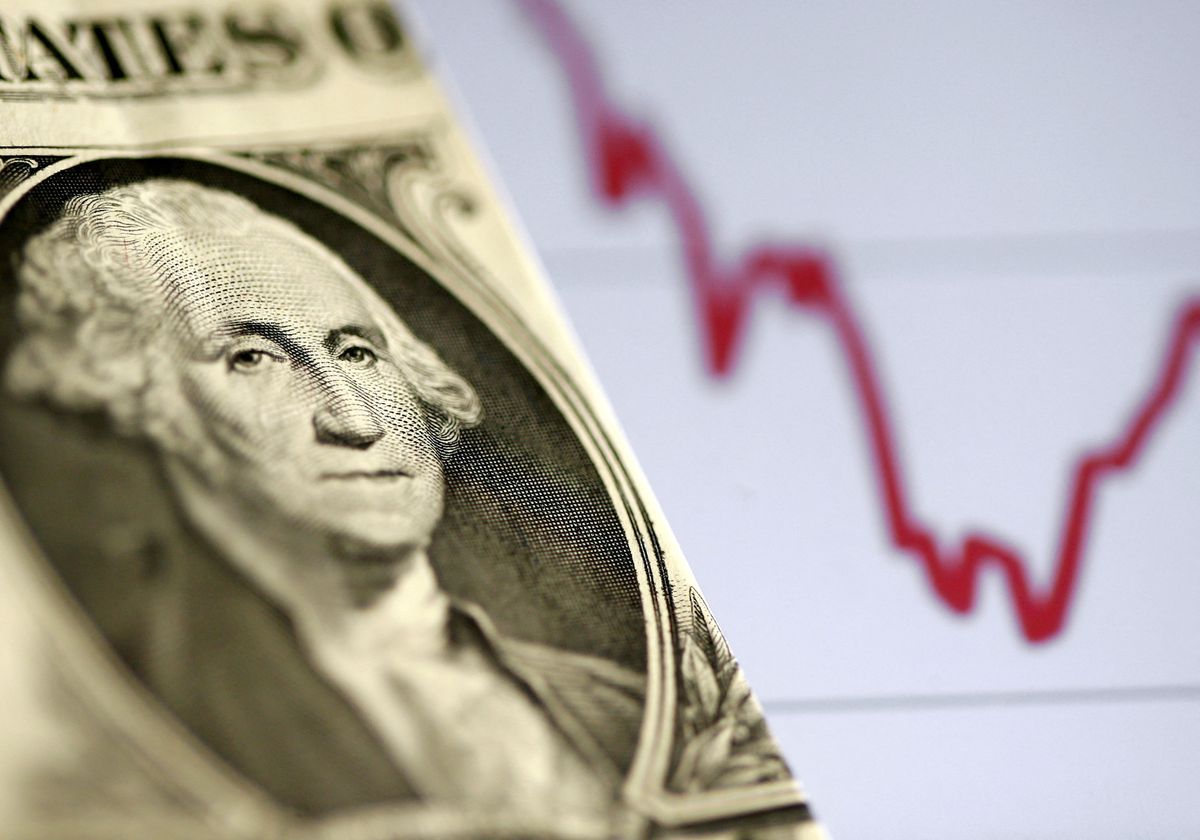What is de-dollarization, and is it a threat to the greenback?
For ages, the US dollar has been like the king of global trade.

A few minutes every morning is all you need.
Stay up to date on the world's Headlines and Human Stories. It's fun, it's factual, it's fluff-free.
The backstory: For ages, the US dollar has been like the king of global trade. Why? Well, apart from the fact that the US has the biggest economy, it's also because oil (a super important commodity) is priced in dollars. And not just oil, most other stuff is traded in dollars, too.
This all really started because currencies used to be backed by gold. But global wars and other events led to that being a pretty unstable system. Eventually, 44 allied countries got together to create an international monetary system called the Bretton Woods System. Since the US had the most gold, they all agreed to peg currencies against the US dollar, which was pegged to gold reserves.
Well, the greenback isn’t backed by gold anymore because it eventually became impossible to convert the dollar to gold at the official price because of fluctuations in the market and demand. So, in 1971, US President Nixon ended that gold conversion standard. But, it still remained the top dog as the world’s reserve currency.
Last year, the dollar made up about 58% of the world's foreign exchange reserves, leaving the euro in the dust with just around 20%. The Chinese yuan? Well, it had a teeny-tiny share of about 2.7%. But it seems like things are starting to shift. Russia, for instance, has been hit with economic sanctions that cut it off from the global banking system last year. Plus, the US decided to crank up interest rates to combat inflation which had a domino effect as central banks worldwide followed suit and hiked up their rates, too, to keep their currencies from being devalued.
Now, countries like Brazil and those in Southeast Asia are saying, "Hey, let's trade using different currencies, not just the dollar." It's called de-dollarization, and the BRICS nations (Brazil, Russia, India, China and South Africa) are pushing for it.
More recently: China, being a big shot in trade, is making some serious moves. According to recent data from the US Treasury Department, the world's second-largest economy actually slashed its holdings of US Treasury securities, hitting a 12-year low of around US$849 billion in February.
But China is not alone in this endeavor. Brazil's President Luiz Inacio Lula da Silva reportedly wants in on the action, too. During his visit to China in April, he spilled the beans about wanting to decrease reliance on the good old US dollar for global trade. And you know what else? Reps at the Association of Southeast Asian Nations (ASEAN) finance ministers and central banks meeting in March were buzzing about diversifying away from the dollar, yen, British pound and euro and trading in local currencies instead.
A lot of the pushback happened with the start of the Ukraine war, as the US froze Russian assets with its sanctions package. So, some countries are nervous about staying pegged to greenback and are looking for ways to protect their currencies from geopolitical disruptions.
The development: The big shots over at US bank JPMorgan are saying that signs of de-dollarization are popping up in the global economy and that the greenback has been feeling the heat lately. Even though the currency's share of FX reserves held by central banks worldwide is at 58%, this is actually a record low. But they say the good ol' dollar isn't going anywhere just yet. It's still going strong and will probably stay on top for a while.
According to JPMorgan, only about 2.3% of payments through this international money transfer system SWIFT are in Chinese yuan. Meanwhile, the dollar is still the king, commanding a whopping 43%, with the euro trailing behind at 32%.
Key comments:
"Some signs of de-dollarization are emerging," said JPMorgan analysts, adding the trend was likely to persist even as the dollar maintains its "large footprint."
“Every night I ask myself why all countries have to base their trade on the dollar,” said President Luiz Inacio Lula da Silva according to the Financial Times. “Why can’t we do trade based on our own currencies?” the Brazilian leader asked. “Who was it that decided that the dollar was the currency after the disappearance of the gold standard?”
"This is the process that is underway," said Mark Tinker, managing director of Toscafund Hong Kong, to Reuters. "The dollar is going to be used less in the global system."
“By diversifying their holdings reserves into a more multi-currency sort of portfolio, perhaps they can reduce that pressure on their external sectors,” said Cedric Chehab from Fitch Solutions.




Comments ()